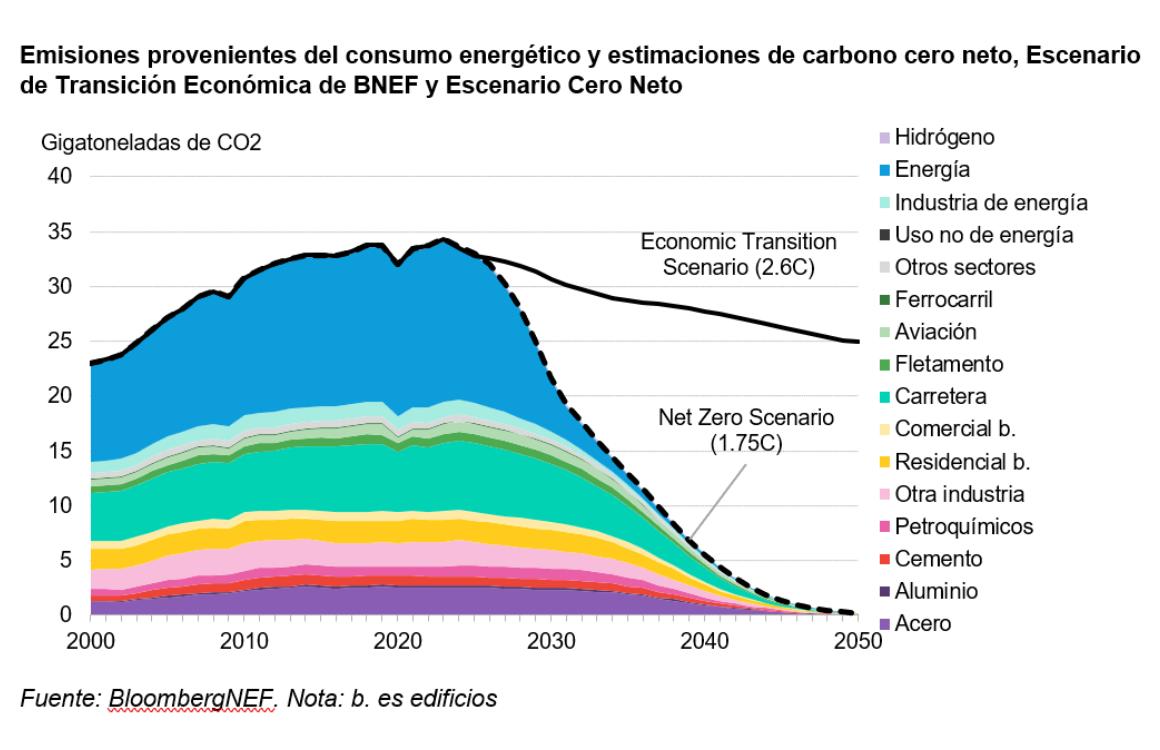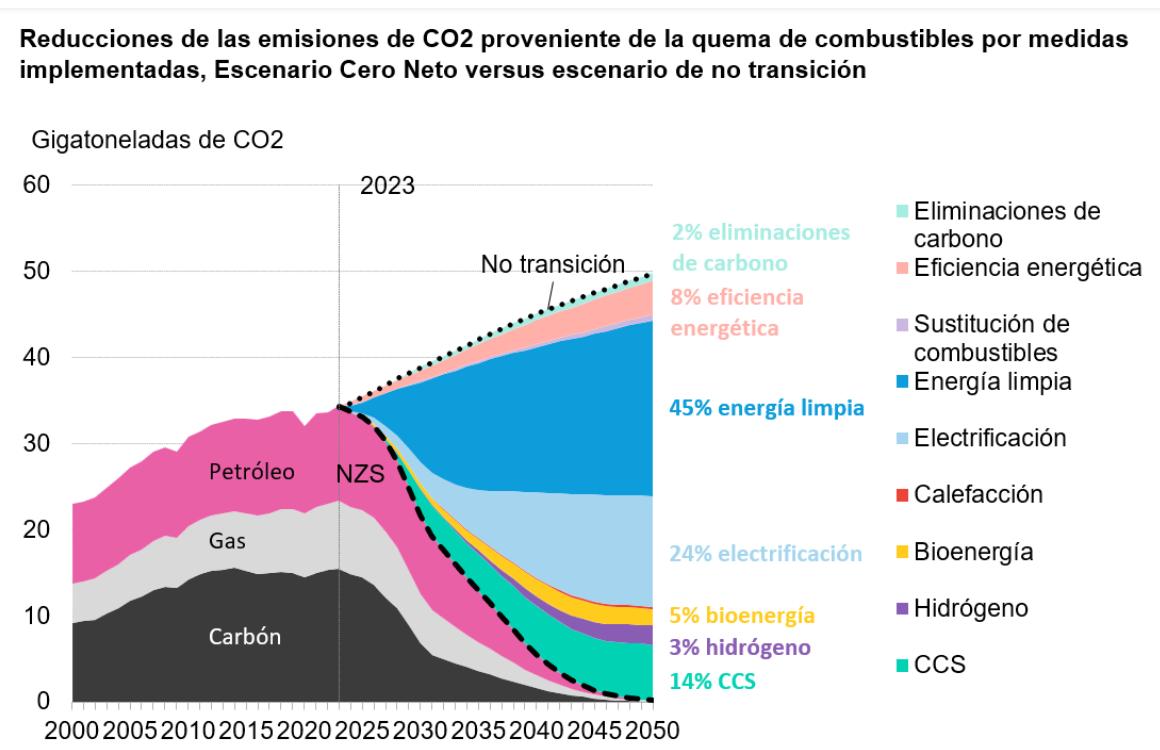
The urgency to address climate change has led to a growing number of companies committing to the goal of achieving net-zero emissions by 2050. According to the “New Energy Outlook 2024” report by BloombergNEF (BNEF), this goal remains achievable, but swift and decisive action is needed to attain it.
According to David Hostert, Director of Economics and Models at BNEF, “the pathway to staying below two degrees is narrowing. We need rapid emissions reductions starting now, not in five years.”
The report details how countries can still meet the goals of the Paris Agreement and achieve net-zero by mid-century. The report’s “Net-Zero Scenario,” consistent with a 67% probability of keeping global warming to 1.75 degrees Celsius, shows that demand for oil, gas, and coal will peak immediately and decline more steeply from 2025 onwards.

Furthermore, it highlights that global renewable capacity will triple by 2030, there will be rapid uptake of electric vehicles leading to the total global phasing out of combustion engine vehicle sales by 2034, and there will be a significant increase in carbon capture technology, alongside energy storage technologies and nuclear energy, all before 2030.
In this regard, the transition to clean energy and emission reduction is transforming the economic landscape for various companies. Investment in clean technologies is driving economic growth and generating significant job creation opportunities in areas such as solar panel installation and electric vehicle manufacturing.
Likewise, the adoption of electric vehicles and the decarbonization of transportation are impacting transportation and logistics companies. To meet zero-emission goals, these companies are adapting their operations and fleets, investing in electric vehicle charging infrastructure, and exploring innovative solutions to improve energy efficiency in distribution and logistics.

BNEF estimates that the global fleet of electric vehicles is expected to grow from 13 million in 2023 to 1.6 billion by 2050, with annual sales needing to exceed 100 million by 2040.
This implies that sales of internal combustion engine vehicles must cease worldwide by 2034. To support the widespread adoption of electric vehicles, massive deployment of charging infrastructure is needed.
According to BNEF’s Economic Transition Scenario, an average annual investment of $3.5 trillion is required until 2050, while in the Net Zero Scenario, an average of $5.3 trillion annually is needed. Renewable energy capacity must triple to meet the Net Zero Scenario, with solar and wind energy accounting for nearly 80% of global electricity generation by 2050 in this scenario.
Thus, Mexico is moving towards sustainable mobility, which is crucial to achieving its decarbonization goals. According to Nanghelly Silva, president of the Innovation and Development Commission of the Business Coordinating Council (CCE), the country must develop a strategy that addresses the necessary electric and charging infrastructure to support electromobility, as well as incentives for the acquisition of zero-emission vehicles and specialized training programs.
Furthermore, Silva emphasized during the Sustainable Mobility Roundtable organized by the Private Sector Studies Commission for Sustainable Development (Cespedes) and the CCE, “that there is already a solid foundation in Mexico in terms of vehicle manufacturing, an industry with highly skilled labor and a robust supply chain. These elements provide a favorable starting point for driving the development and implementation of innovative technologies.”
Despite the challenges, Mexico is taking concrete steps in the right direction. Silva pointed out that the country is making progress in creating an adequate regulatory framework and promoting sustainability policies.
Moreover, she underscored that collaboration among different sector stakeholders is being encouraged, which is creating a strong community around sustainable mobility. In Silva’s words, Mexico has a strategic geographic advantage that allows it to aspire to international markets, and interesting projects in urban mobility and services for the future are already underway.
Similarly, companies are also implementing innovations in logistics and supply chain to reduce their carbon footprint and optimize energy efficiency. From optimizing transportation routes to implementing real-time tracking and monitoring technologies, these solutions are helping improve the sustainability of logistic operations and reduce costs associated with transportation and product distribution.
The BloombergNEF report also emphasizes the importance of companies actively committing to the transition towards net-zero emissions. By addressing the challenges and seizing the opportunities presented by this transformation, companies can not only contribute to the fight against climate change but also drive innovation and sustainable growth in their respective fields.
Comment and follow us on X: @GrupoT21













